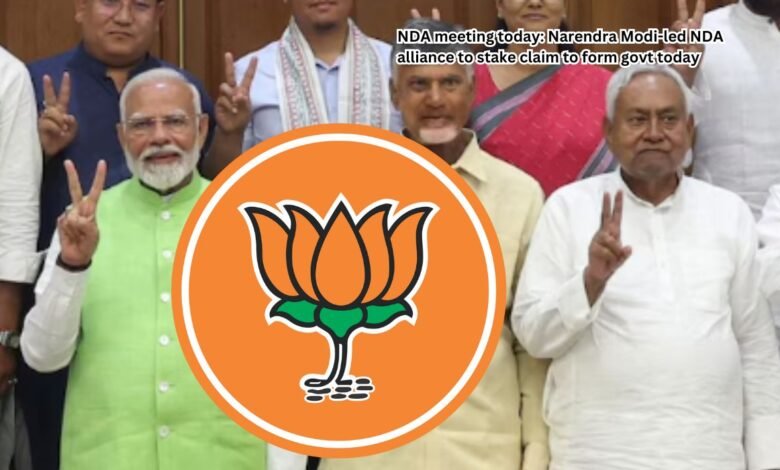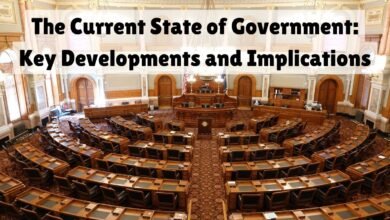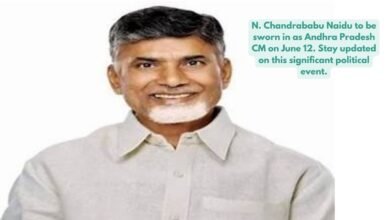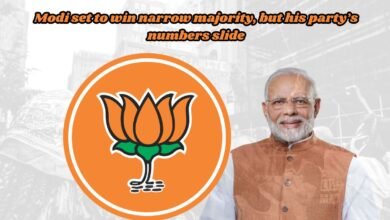NDA meeting today: Narendra Modi-led NDA alliance to stake claim to form govt today
Today, the Narendra Modi-led NDA alliance will stake its claim to form the government during their crucial meeting.

Today, the Narendra Modi-led NDA alliance will stake its claim to form the government at the NDA meeting.
The National Democratic Alliance (NDA) stands as a pivotal coalition in Indian politics. Formed in 1998, it encompasses a variety of political parties united under a common agenda, predominantly led by the Bharatiya Janata Party (BJP). Over the years, the NDA has played an instrumental role in shaping India’s political and economic landscape, gaining substantial traction and popularity among the populace.
In the most recent electoral cycle, the Narendra Modi-led NDA alliance has once again emerged as a formidable force. Following rigorous campaigning and a series of strategic political maneuvers, the alliance has secured a significant number of parliamentary seats, positioning itself to stake a claim to form the government. This development underscores the continued dominance of the NDA in the Indian political arena, reflecting a broad-based voter endorsement of its policies and leadership.
The election results revealed that the NDA has clinched a decisive majority, with the BJP alone securing a substantial portion of the seats. This majority not only reinforces Narendra Modi’s leadership but also highlights the electorate’s preference for the coalition’s vision for India’s future. The political landscape, therefore, stands at a crucial juncture, with the NDA poised to drive the next phase of governance.
Today’s NDA meeting marks a significant milestone as the alliance prepares to officially claim the mandate to govern. This meeting is expected to solidify the coalition’s strategy, outline its policy priorities, and set the stage for the formation of a new government. As the political dynamics unfold, the NDA’s ability to navigate the complexities of governance will be under close scrutiny, both domestically and internationally.
Understanding the current scenario requires a nuanced appreciation of the NDA’s historical context, recent electoral achievements, and the broader implications for India’s political future. As the Narendra Modi-led NDA alliance steps forward to assume the mantle of governance, the anticipation and expectations surrounding its next moves are palpable among political analysts and the general public alike.
Agenda of the NDA Meeting
The National Democratic Alliance (NDA) meeting today, led by Prime Minister Narendra Modi, carries significant weight as the coalition seeks to stake its claim to form the next government. This high-stakes gathering will address a range of crucial topics, with the primary objective being the formal declaration of the alliance’s intention to govern. Several other pertinent issues will also be on the table, ensuring a comprehensive approach to the immediate political and administrative landscape.
Key points on the agenda include:
- Forming the Government: The foremost priority is to strategize the formal process of staking a claim to form the government. This includes finalizing the list of Members of Parliament (MPs) who will present the claim to the President.
- Coalition Strategies: Discussions will take place on how to maintain and strengthen the coalition. This will involve addressing any intra-coalition issues and ensuring a unified front as the NDA moves forward.
- Cabinet Positions: Allocation of key cabinet positions is a critical topic. Identifying leaders for vital ministries and discussing potential candidates will be essential to ensure an efficient and effective governance structure.
- Immediate Policy Priorities: Setting the immediate policy agenda will be a focus. This includes prioritizing key initiatives and reforms that the NDA aims to implement in the initial stages of governance.
In addition to these primary points, the meeting is expected to yield several significant announcements and decisions. These could include strategies for upcoming state elections, addressing economic challenges, and refining foreign policy approaches. The outcomes of this meeting will likely have a substantial impact on the political scenario, setting the tone for the NDA’s governance and strategic direction in the coming term.
Key Leaders and Their Roles
Narendra Modi, the Prime Minister of India, stands as the central figure in the National Democratic Alliance (NDA). His leadership has been pivotal in steering the coalition’s policies and strategies. Under his guidance, the NDA has not only aimed to secure a majority in the government but also to implement significant reforms and initiatives that resonate with the electorate. Modi’s charisma and political acumen have been instrumental in consolidating the alliance’s position in Indian politics.
Alongside Narendra Modi, several other key leaders play crucial roles in the NDA’s framework. Amit Shah, the Home Minister, is another prominent figure. Known for his strategic mind and organizational skills, Shah has been a key architect in the NDA’s electoral successes. His role transcends beyond mere administrative duties, as he is heavily involved in devising and executing the alliance’s broader political strategies.
Nitin Gadkari, the Minister of Road Transport and Highways, is a vital asset to the NDA. His contributions towards infrastructural development have been significant, and his initiatives have garnered widespread approval. Gadkari’s efforts are often seen as a testament to the NDA’s commitment to modernization and economic growth.
Rajnath Singh, the Defence Minister, brings a wealth of experience and stability to the NDA. His role is crucial in shaping the country’s defense policies and ensuring national security. Singh’s leadership ensures that the alliance maintains a balanced and pragmatic approach to defense and international relations.
Key leaders within the NDA, their positions, and their respective parties:
| Leader | Position | Party |
|---|---|---|
| Narendra Modi | Prime Minister | Bharatiya Janata Party (BJP) |
| Amit Shah | Home Minister | Bharatiya Janata Party (BJP) |
| Nitin Gadkari | Minister of Road Transport and Highways | Bharatiya Janata Party (BJP) |
| Rajnath Singh | Defence Minister | Bharatiya Janata Party (BJP) |
These leaders, among others, form the backbone of the NDA alliance. Their combined expertise and leadership are critical in the coalition’s quest to form the government and implement its vision for India’s future.
Implications and Next Steps
The decision of the NDA, under the leadership of Narendra Modi, to stake a claim to form the government carries significant implications for India’s political landscape and governance. This move is poised to reinforce the NDA’s influence on public policy and administrative strategies, potentially leading to continuity in ongoing reforms and initiatives. With a focus on economic growth, infrastructure development, and digital innovation, the NDA’s governance agenda may continue to shape India’s trajectory in these crucial sectors.
However, the formation of a new government is not without its challenges. The NDA may face substantial opposition from rival political parties, which could lead to intense debates and scrutiny in the legislative process. The opposition might leverage various platforms to question and challenge the NDA’s policies, thereby creating a dynamic political environment. Additionally, coalition politics could present internal challenges, as the NDA will need to maintain cohesion among its diverse alliance partners to ensure a stable government.
The procedural requirements for staking a claim to form the government are well-defined. The NDA will need to present a majority support in the Lok Sabha, India’s lower house of Parliament. Following this, the President of India will invite the NDA to form the government, provided they demonstrate the requisite majority. This process involves several formalities, including the selection of the Prime Minister, the formation of the Cabinet, and the swearing-in ceremony. The timeline for these events typically spans a few weeks, allowing for a smooth transition of power.
- ‘Still a strong story.’ Why India’s election shock won’t derail its economic boom
- Modi set to win narrow majority, but his party’s numbers slide
- PM Modi to Rely on Ambitious Allies in Coalition Government
Looking ahead, the successful formation of an NDA government could have far-reaching impacts on India’s future. The continuation of Modi’s leadership might lead to sustained policy initiatives, particularly in areas like economic reforms, foreign policy, and social welfare programs. The NDA’s governance could also influence India’s global standing and bilateral relations. While the road ahead may present hurdles, the determination of the NDA to navigate these challenges will be crucial in shaping the nation’s progress.



